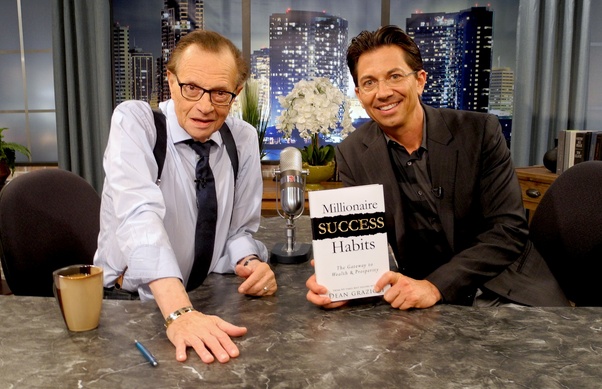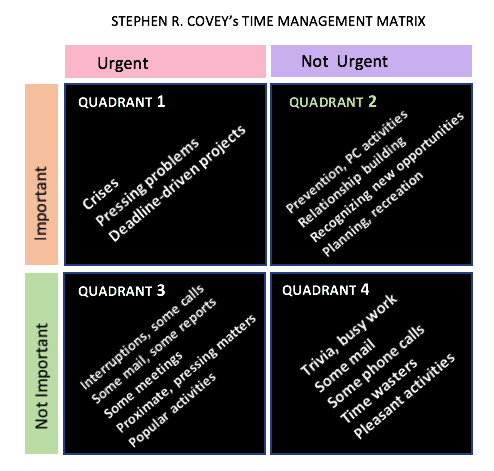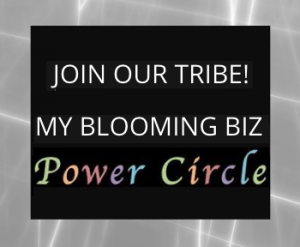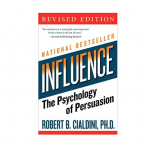Our Findings From An Interview With Dean Graziosi – Solidifying His Why and Formulating His How
Dean Graziosi is an accomplished man but it didn’t just happen by happenstance. Dean knew what he wanted and worked very hard and smart at accomplishing it. He solidified his why very early on and set out to formulate and activate his how. He sought out mentors – others who were successful the way he wanted to be successful and began emulating and putting their methods into practice while adding his personal touches to the processes.
How Did Dean Graziosi, A Poor Dyslexic Kid With No College Degree Build A Multi-Million Dollar Real Estate Empire From The Ground Up?
Dean Graziosi didn’t do particularly well in high school. Now, it wasn’t because he wasn’t working hard. In fact, he was working harder than most. It’s that he wasn’t working hard on what you imagine an average 16 or 17 year old to be working on. No homework, no tests, no after school programs, no study groups… Instead, he was working on… cars. Lots of cars.
Dean woke up every morning at 5:30am to put a few hours of work in at the shop before school. And when he got out of school he would hurry on over back to work. He didn’t do this because he was in love with fixing cars. He did it because his family was poor, and his parents needed his help to make ends meet. According to Joe, “I watched my dad work his ass off to make twenty or thirty grand a year, always struggling, always out of money. We moved around a lot, always getting kicked out of places for lack of rent. We lived in a large bathroom for a whole six months because it was the only place we could have heat from our little electric heater. We literally ate out of garden for a year straight one year”.
From all of Dean’s experiences growing up, he picked up a simple life goal, and that is “My dad works hard, kills himself with work, and we still can’t eat dinner. That’s not working out for me. That’s not going to be me.” Dean moved 20 times before the age of 19. When asked why, he says, “My parents were really good at getting married. They just weren’t really good at staying married. So my parents got married and divorced a lot. Nine times in total between the two of them.”
All the divorcing and moving was related to money problems. According to Dean, “Money was always a huge issue. I watched my mom work three jobs to make 90 bucks a week, and she was never around. I can’t even remember all the different times we got evicted. I even used to make my mom drop me off a block from school in her old beat up, barely-running Impala because I didn’t want to get made fun of.” During this time, Dean watched all his friends get ready for college. He didn’t even consider college. In his own words, “I didn’t think there was an option for me to go to college. My family didn’t have money. I was horrible in school. I had dyslexia. I couldn’t read well. I was always in special reading. I felt dumb. I felt inferior in class. And looking back, I realize I was being judged by an outdated scorecard. Teachers didn’t give me the opportunity to listen to books. Now I practically listen to one book per day. My parents weren’t the type that said, ‘Yes, you’re going to college.’”
However, as he and his friends graduated high school, and his friends who went to college were stressing out about which pre-law class they should take (for law careers most of them didn’t even want), Dean was learning the ins and outs of the auto business – buying and selling used cars. As important as learning the auto business was, Dean was slowly learning about sales. He noticed that, the less he talked, the more he sold. As he declared to us, “I would listen, and I’d ask a couple of questions, and then I’d let them talk. I realized I could sell a lot better with my ears than I could with my mouth. People will buy from you or learn from you or adore you when they feel understood, not when they understand you. I noticed how many guys in the auto business would only talk about who they were, how great they were, their qualifications, why you should buy from them, before even asking one question. I would watch that and think, ‘Wow, that’s exactly the kind of person I’m repelled from.’ So I’d do the opposite. When people would come on the lot, I’d ask a lot about them, their family and what their needs were. Then, with that information, I would literally push people away from certain cars. I would say, ‘After what you told me, that’s not the car for you. Your kids aren’t going to fit in the back, and it’s rough on the back roads.’ And all of a sudden, this transparency built a relationship.”
What Secret Did Dean Discover That The Few Rich People From His Hometown Knew?
Dean was determined to escape the poverty he had experienced growing up, and to help his parents stop working so hard as well. He was in full hustle mode! He looked around, and he noticed that the only people in his little town who were rich were the two guys who were into real estate. As he recalled, “I remember the two most successful Italian guys in my town. I mean, I myself am Italian. I grew up in this little town in upstate New York and I thought everybody was Italian. It was just a town full of Italian people. But both these men had money, they seemed happier than everybody else in town, they drove the only Mercedes in town and they were both into real estate. That made me think real estate was the answer. But I didn’t have money. When I found out that those two did everything they did without using any of their own money, that did it for me. I had to figure out how this game worked. I asked them about their business, and how they got started, and they gave me some solid pointers.”
Upon hearing what they told him, Dean was determined to use his hard earned sales skills to convince someone to sell him a rental property with no money down. According to Dean, “I was just young and dumb and hungry, trying to get away from my past, trying to gain control of my life, and I just went after it. I said, ‘If they can do it, why can’t I?’ I was an eighteen-year-old kid, knocking on doors of places for sale. I got rejected enough times, until finally I found an old, empty apartment building with 9 units in it that was so run down that nobody wanted it. I convinced the owner I could fix it up — based on my mechanical skills, and he was willing to give me a shot to see if I could walk my talk. I took contractual ownership for six months. That was the deal. ‘I’ll work on this house, I’ll make it amazing, and in six months I’ll close on it, or you’re going to get the property back, with an improved house’. Everyone told me I was crazy. But I said, ‘I have no other option, and I’m betting on me. I’m not betting on anyone else. I went to work. I cleaned up the outside of the building. I got my friends to help me. I told them I’d pay them later on. I bartered with people. I was cutting firewood and providing cords of wood for a guy who was putting my sheet rock up. I fixed the guy’s car who was doing my plumbing. I did all this barter stuff and I fixed this old apartment up. By the time the six months came, I went to a bank and it was appraised for $200,000. I only had to borrow $65,000. They gave me 100% of the money! Then I finished all the apartments. That was the foundation of everything. I used the cash flow from that building to buy another one, and then another one, and that was the start of my real estate career.”
By the time he was in his early twenties, with the wealth he was generating, he had saved his Dad’s business and, as a budding manager, had his father working for him on the used car lot. There was so much deception in the used car business among his competitors, so Dean saw a way to help customers. He created a video called, “How to Buy a Used Car Without Getting Ripped Off.” It showed his customers all the scams, deceptions and frauds his competitors were using, so the buyers could protect themselves. It also positioned Dean as an honest used car dealer, which is very rare. Customers loved it, and this got the spark in Dean’s mind about selling information, rather than physical products. As he recalled intuitively, “I thought, ‘Wow, rather than selling a car to one or two people a day, let me help tens of thousands of people make better decisions.” There was just one problem, he didn’t know how to get his information out to the masses. This was long before the internet.
How Did Tony Robbins’ Informercial Change Everything For Dean?

Late one night, Dean saw an infomercial that changed his life. Yes, an infomercial changed his life! It was a Tony Robbins infomercial, and no, it didn’t change his life because of the content in the infomercial – though he loves Tony’s material and has gone on to become great friends with him. It changed his life because it gave him the idea of making his own infomercial — about buying and selling cars. According to Dean, “I typed out this whole course on how people can wholesale cars without a license, and create their own car dealership. I transcribed a Tony Robbins infomercial, ported over the basic structure to a car-dealing infomercial, and sold the course for $59. That’s what started my information business. I failed miserably for the first year, but through time, effort and energy I scaled that up and made a viable company.”
Based on the success of his first auto-related course, Dean decided to make his first real estate investing info-product, the type of product he’s now famous for. According to Dean, “My first real estate course aligned with how I got into real estate. It was called ‘Think a Little Different’. It was all about finding the deals that no one else wanted, like the one that helped me get my start. I’d found a house that had an extra lot attached to it, and the leverage of the lot helped me do it. I found a house on a large property that all the neighbors were fighting over, but no one could cut the check for the whole thing. Everyone was fighting, and they didn’t want it subdivided with a bunch of houses built on it. So I went in, bought the property, and sold little pieces to all the neighbors. I spent $180,000 for the property and I ended up selling about $300,000 of pieces to the neighbors. Once all the fighting between the neighbors was cleaned up, I sold the middle part, with the house on it, for half a million. Because I didn’t have any money starting out, my philosophy was, I had to think differently. That’s what the course was about.”
Dean was starting to have success in his real estate investing, but his success was limited by it all being dependent on him. As he explained, “Everything relied on me. If I wasn’t doing deals, if I wasn’t doing the plumbing, if I wasn’t cleaning, if I wasn’t painting, I wasn’t making money. I realized, the more you could create a system to do anything, it’s replicable. I wanted to create a replicable system so I could look at the numbers and say, ‘That’s a winner.’ And then I could plug it into a system so it would get renovated, and I could plug it into a sales system, and when that was all done, there was money left over. The more replicable and scalable I could make it, the more I could write in my books and my courses to teach my students how to replicate what I’d done.”
Tony Robbins continued to inspire Dean in making his infomercials and building his real estate education business. According to Dean, “If Tony didn’t get my hundred bucks from an infomercial, I don’t think I’d be where I am today. Because I saw that if he could get me — who was a broke kid when I first saw his infomercial — to send him money for education, I could get people to send me money for education as well, in a totally different field. Now he’s one of my dearest friends. We talk every single week. We have businesses together. We travel together. We do all kinds of great stuff.”
Dean says, for many years, he was supporting his infomercial business with cars and real estate. According to Dean, “I was losing five grand a week in my infomercial education business, so I’d have to go make it with real estate and cars. Finally, we got some momentum, and like any business, like any entrepreneurial journey, it was ups and downs. But I learned along the way, and gained wisdom, and got better on camera, better at selling, created better courses, and we just evolved and I never stopped investing. I never stopped listening to my students. I never stopped trying to enter the conversations going on in the mind of my prospects. I tried to sell them what they wanted and supplied them what they needed, and we just kept evolving.”
One of Dean’s biggest breakthroughs in the infomercial business came when he watched a Larry King interview. King was interviewing the pastor and author Joel Osteen, and he asked Osteen a very provocative question. As Dean explained, “Joel was on there talking about his new book at the time. And Larry said, ‘I’m a Jew. I don’t believe in Jesus. Am I going to hell?’ It was riveting — the open dialogue like that. It was one of those moments where my breath went away. And I remember thinking at that moment, ‘Oh, my God. If Joel was selling his book on the Larry King show, direct to the consumer I would buy it right this second! I can do that.’ It gave me this epiphany, and I was obsessed. I built the Larry King set. I bought the Larry King microphone. It’s still sitting in my studio.

Dean continues, “I hired somebody to do a real interview, for my book ‘Be a Real Estate Millionaire’. No teleprompter. No script. I told the guy, ‘I want to do a Larry King style interview.’ I was the first one to ever do it with a book. And he said, ‘Well, where are the questions? What do you want me to say?’ It was 2007. The economy was crashing. The real estate market was going to hell in a hand basket. Foreclosures were going through the roof. I said, ‘Hey. I’m a real estate guy telling people how to make money in the worst market possible. You ask me any question you want, and try to prove that I don’t know what I’m talking about…’
According to Dean, “It was my own interview, and I was nervous. I had cotton-mouth. The guy’s like, ‘Why now? The economy’s crashing. Everything’s foreclosed.’ I said, ‘This is the time everybody runs away. The people who run towards are the ones who are going to come out ahead.’ I just riffed on this. And instead of a big, long call to action in an infomercial—‘ But wait, there’s more, and you’ll get this’ I just said, ‘Hey, I wrote this book called ‘Be A Real Estate Millionaire’ to tell you how to profit on the way down. If you want it, just call the number at the bottom of the screen and get it.’ That was the extent of the call to action.”
That book sold over a million copies! “During that time,” Dean continues, “most of my competitors in that space went out of business and crashed. And our business quadrupled in size, and put me on the path to being the number one real estate educator on the planet.”
When Dean was asked, “What would you say was your particular insight that allowed you to thrive and to help your clients and your customers ride this tsunami wave that was crashing everywhere? His reply was, “People always taught ‘buy low, sell high.’ Go to the bank, borrow the money, get a home equity line of credit, borrow from your family, buy the house, fix it, and flip it for a profit. But none of that works on the way down. That’s how you go broke on the way down. That’s why there were so many foreclosures on the way down. It’s why so many people got hurt. They bought at the peak thinking it was just going to go up forever. And I was just really transparent. I said, ‘buying and holding does not work on the way down. Because you spend $300,000 for a house that’s now worth $150,000, with the same rent the whole way. So, on the whole way down, where all my competitors were talking about, ‘No money down,’ and ‘fix and flips,’ and ‘there’s $80,000 on every fix and flip you do,’ I was saying, ‘Hell no! Don’t do any of that! Here’s what you should do. On the way down, cash buyers—landlords-are still buying deals.’ On the way down, I bought about 2,000 individual houses, during the crash.”He continues, “That’s when I really let wholesaling be known to the world. I said, ‘Find a deal, lock it up below the market, and then find the cash buyers that are landlords that know the value. They know how to rehab it. Just hand that deal off, and make two, three, four grand in the middle. This isn’t about getting rich overnight. It’s about doing a couple deals a month that get you momentum to be in the real estate market. People just love that transparent message of ‘Don’t do that. You’ll be screwed.’ When everybody else was talking about fix-and-flips. That kind of counter-intuitive or against-tradition message just nailed it. People had great success, and we went to a whole new level.”
Why Did Dean Pivot From Teaching Real Estate Success To ALL Success?
While Dean’s company went on to become the number one real estate educator in the world, through Dean’s books and live events, Dean noticed that many people bought his materials and didn’t do anything with them. According to Dean, “It made me obsessed on personal growth for the last 10 years, more than anything else, because you could give many people a business on how to profitably sell $10 bills for $5. And they’d still fail. Because of what goes on between their ears, what goes on with their beliefs, what goes on when they hit their first obstacle. I’ve just become a massive student of what makes people move forward, and makes people stop. I’ve been doing a weekly video called ‘My Weekly Wisdom’ for almost 10 years now. And I really just dialed in, obsessing with reading and studying about this question: Take two people who both have the same exact knowledge. Why does one thrive and one struggle? That has been an obsession of mine for many years now.”
In the last few years, Dean has pivoted towards teaching people about success in general. According to Dean, “I wanted to go upstream because I can give people the capabilities for real estate, but if they don’t take action, then they’re like, ‘Yeah, I bought Dean’s stuff. It doesn’t work.’ So, how do I get inside their head? When I went upstream, I realized, it’s all about habits. The habits we do form the lives we have. And I just dug deep for years on what the habits are that make successful people tick. That’s been my passion and my journey. Transforming from just the real estate guy to now, the success guy.”
In keeping with that shift, Dean launched his latest book, Millionaire Success Habits. It just passed over 350,000 copies sold. Originally, however, he got resistance from friends for wanting to use the word “habits” in the title. “Dear friends who were successful said, ‘No, don’t name anything habits. Nobody wants to change a habit. Make it the Millionaire Success Secrets, or the Millionaire Success Magic. But I refused to do that. I knew that people were ready. People are sick of the ads, ‘Get rich in five minutes, lose 100 pounds in two seconds.’ Especially millennials right now. People are always saying, ‘Millennials are this, millennials are that.’ Actually, millennials are people that just see the truth and smell bullshit. And I think they just want the real deal. They want people to tell them like it is.”
Dean is still on fire. He has come a long way from a broke kid working in his dad’s auto-shop to help the family, and knocking on doors to find a broke-down rental apartment to renovate. According to Dean, “We have multiple success courses. I have a monthly live training that I do called Dean’s Inner Circle, all on success. I have a high level Organized Brilliance Mastermind, which is $25,000 a year for real estate investors. That one’s been sold out. So, we’re having a lot of fun helping people get to the next level, especially people who are smart enough to see: you can learn through your own trial and error, or you can learn through other people’s trial and error, and pay for speed. It’s been a fun journey.”
What Is One Of Dean’s Greatest Accomplishments That Hits Closest To Home?
Since Dean’s family struggled even to have food when he was a kid, he has become passionate about supporting “Feeding America”, a charity that Tony Robbins is involved with. For someone whose family struggled with barely having enough money to buy food when he was a kid, this is one of the accomplishments that feels most meaningful to Dean.
To find out more about Dean, check out his YouTube videos. Here’s one:
































